Posted on 12/4/2023
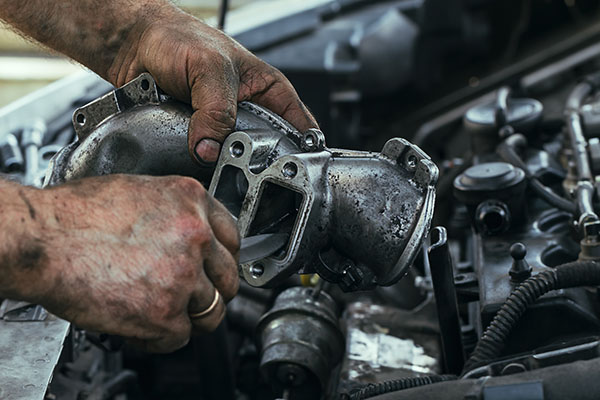
Your vehicle's engine is a complex and finely tuned machine, and one crucial component that affects its performance is the Exhaust Gas Recirculation (EGR) valve. The EGR valve is responsible for recirculating a portion of exhaust gasses back into the engine's intake manifold. This process helps reduce nitrogen oxide (NOx) emissions, regulate combustion temperatures, and improve fuel efficiency. Over time, EGR valves can face several issues that require repairs. Carbon Buildup Carbon deposits can accumulate on the valve, causing it to stick or not function properly. Faulty Valve Operation EGR valves can become stuck in the open or closed position, affecting engine performance. Reduced Fuel Efficiency Malfunctioni ... read more
Posted on 11/30/2023
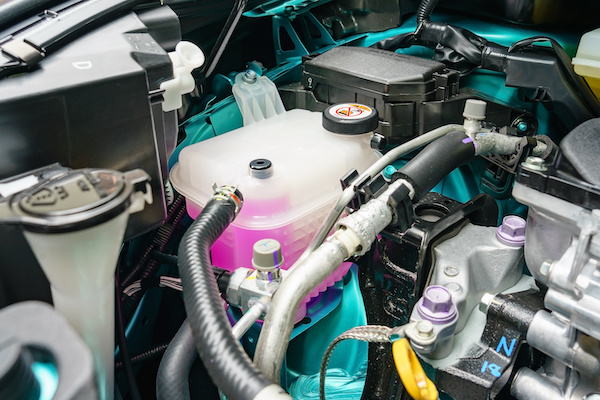
Have you ever felt like you were being fried in your car seats on a scorching summer day and thought to yourself, "Thank goodness for air conditioning"? That very sentiment should resonate with you when it comes to your car’s cooling system. This flow and balance of components ensures your engine doesn't throw a fiery tantrum. Key Components of The Cooling System Like our body’s complex network to regulate temperature, a vehicle's cooling system boasts an ensemble cast each with a critical role: Radiator Think of this as the A/C unit for your engine, dissipating heat absorbed from the engine. Water Pump This is the circulatory system’s pump, propelling coolant through the engine's veins. Thermostat Just like your home's thermostat maintains comfort, this gadget ensures optimal engine temperature. Coolant The lifeblood itself, a mixture that ... read more
Posted on 10/31/2023
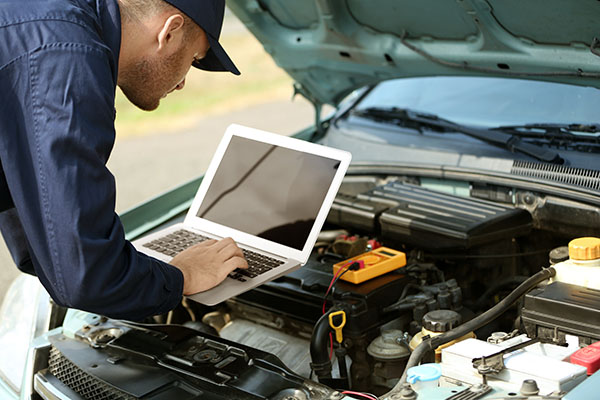
In the labyrinth of modern automotive intricacies, every driver encounters a moment of trepidation when the check engine light flickers to life or an error code surprisingly appears. Amidst the palpable concern for the unknown lies a beacon of hope - vehicle computer diagnostics. Beyond mere flashing lights and cryptic codes, these diagnostic tools harbor the potential to decode vehicular mysteries, sparing us the anguish of prolonged troubleshooting and costly repair bills. Empowering Precision through Diagnostic Insights Vehicle computer diagnostics serve as the all-seeing eyes and ears of modern cars, meticulously monitoring every aspect of their performance. From deciphering complex engine malfunctions to pinpointing intricate electrical discrepancies, these diagnostics tools offer invaluable insights into the underlying issues, enabling mechanics and technicians ... read more
Posted on 9/30/2023
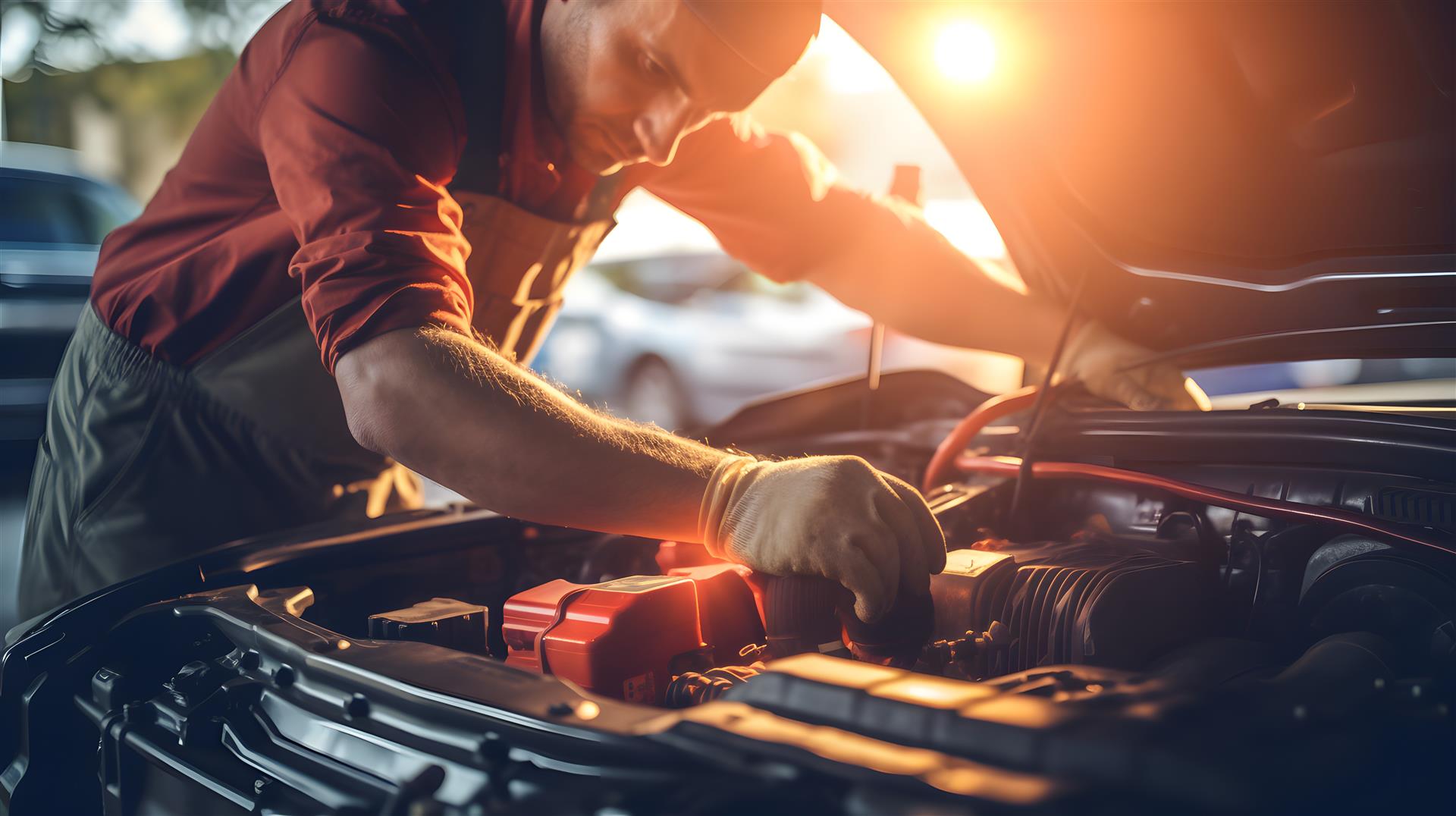
Your vehicle is more than just a machine; it's a marvel of engineering, a symphony of metal and technology working in perfect harmony. But like any living being, it needs nourishment to thrive. That's where fluid changes come into play. But why are they so important, you might ask? Well, continue reading and find out! Oil: The Most Important FluidImagine your engine as a finely crafted clock with countless moving parts. Now, imagine trying to run that clock without any lubrication. It's a cacophony of friction and wear, a death knell for your engine. This is where oil comes into play – it's the lifeblood of your engine.Friction Fighter Engine oil provides a protective layer between the moving parts, reducing friction and heat. Without it, your engine would succumb to excessive wear and tear, leading to costly repairs.Cleanse and Purify Over time, engine oil ... read more
Posted on 8/31/2023

We all love our cars, but sometimes, our habits behind the wheel can take a toll on our wallet and the environment. How is that, you might ask? Maintaining good fuel efficiency is not just about having the right vehicle; it's also about adopting the proper driving habits - and getting rid of the ones that cause problems. 1. Ignoring Regular Maintenance One of the most significant factors affecting your car's MPG is its overall health. Skipping routine maintenance, like oil changes, air filter replacements, and spark plug checks, can cause your engine to work harder and consume more fuel. 2. Aggressive Driving Revving the engine, slamming on the brakes, and rapid acceleration might make you feel like a racecar driver, but it's terrible for your car's economy. Aggressive driving can increase fuel consumption by up to 40%! Instead, adopt a gentler driving style. Gradual acceleration and smooth braking are not only safer but also kinder to your MPG. 3. Idling Excessive ... read more
Posted on 7/26/2023
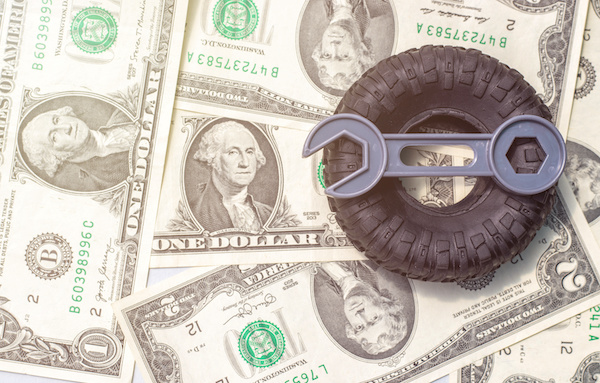
Taking care of your car is crucial. But did you know budgeting for car maintenance can help you manage the costs and keep more money in your pocket? Below are some savvy strategies for budgeting and managing the cost of car maintenance. Set aside a monthly maintenance fund to cover routine maintenance, unexpected repairs, and even those occasional upgrades you've been eyeing. Never be surprised by car maintenance expenses. Prioritize Preventive Maintenance. At first, you may feel like regular maintenance is an additional expense, but it's a wise investment in the long run. You can identify potential issues early and address them before they turn into extensive and expensive repairs. Shop smart for parts and services, and don't be afraid to ask for quotes. Look for a reputable shop that offers competitive prices and quality service. Stay on Top of Maintenance Schedules. Once you find your trusted auto repair shop, ensure you check your vehicle's manual for recommende ... read more
Posted on 6/30/2023
.jpeg)
Maintaining a diesel truck is crucial to keep it running smoothly and efficiently. Neglecting proper maintenance can lead to costly repairs and even put your safety at risk. Tips On How To Best Maintain Your Diesel Truck Regular Oil Changes Regular oil changes are crucial for any vehicle, but they are even more important for diesel trucks. Diesel engines are known for their durability and longevity, but they also generate a lot of heat, which can break down the oil faster. This means that you need to change the oil more frequently. Check your owner's manual for the recommended oil change interval, and stick to it. Using high-quality oil and filters can also help extend the life of your engine. Regularly Replace The Fuel Filters Diesel fuel is notorious for containing contaminants, such as water and dirt, that can damage the fuel injectors and other components of the fuel system. To prevent this, it's important to change the fuel filters regularly. Check your owner's m ... read more
Posted on 5/31/2023
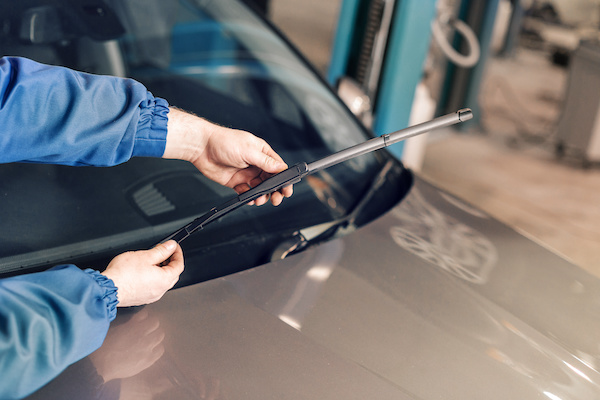
Windshield wipers are a component that is often overlooked in any vehicle. However, they are important, especially when it comes to visibility during bad weather. Choosing the right type of wipers for your car can make a world of difference when it comes to safe driving. When it is time to replace your wipers, you may want to consider the different types of windshield wipers available on the market today. Traditional Frame-style Wipers Traditional frame-style wipers are the most common type of windshield wipers. They are typically made of metal frames and rubber blades and are very affordable. While they may not be the most advanced, they are still effective in wiping away rain and snow from your windshield. Beam-style Wipers Beam-style wipers are a newer type of wiper that is designed without the metal frame of traditional wipers. Instead, they are made up of a single piece of rubber, which is more flexible and durable than traditional wipers. Beam-style wipers are also more aero ... read more
Posted on 4/30/2023
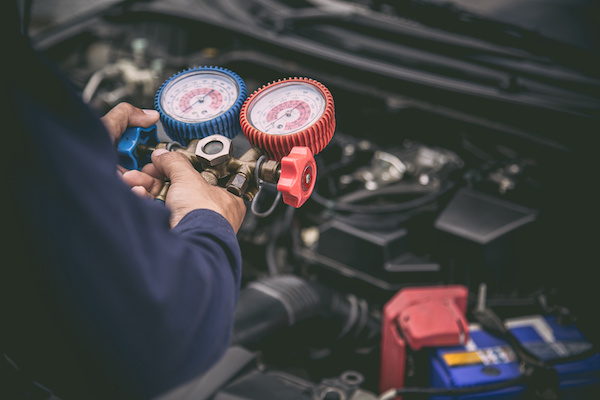
If you live in a warm climate or have experienced hot weather during the summer in NC, you know how vital it is to have an effective air conditioning system in your vehicle. The A/C system in your car works similarly to the one in your home. It uses a refrigerant to cool the air that circulates in your car's cabin. Here is a basic overview of how your vehicle's A/C system works: Compressor: The compressor is the heart of the A/C system. It compresses the refrigerant gas and sends it to the condenser. Condenser: The condenser is located in front of the radiator, and it converts the refrigerant gas into a liquid. Receiver/Dryer: The receiver/dryer removes moisture from the refrigerant and filters out any debris that may be in the system. Expansion Valve: The expansion valve regulates refrigerant flow into the evaporator. Evaporator: The evaporator is located inside the dashboard, and it cools the air entering your car's cabin. Blower Fan: The blower fa ... read more
Posted on 3/30/2023
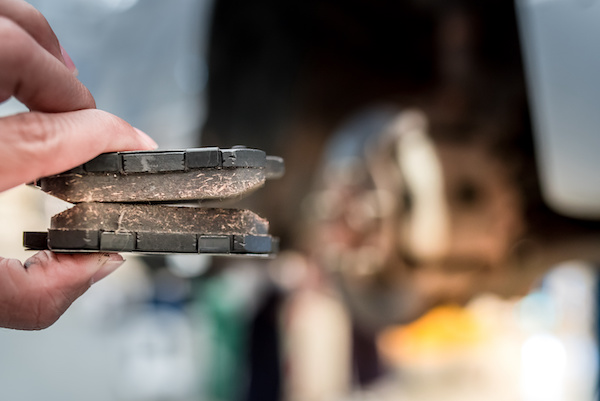
When it comes to replacing your brake pads, it's important to understand the different types of brake pads available. Each type has its own advantages and disadvantages, and choosing the right type of brake pad can help ensure the safety and performance of your vehicle. In this blog post, we'll go over the different types of brake pads and what sets them apart. Ceramic Brake Pads Ceramic brake pads are made of ceramic fibers and non-ferrous materials, and they're known for their quiet operation and low dust output. They also offer good stopping power and are resistant to fading, which makes them a popular choice for performance-oriented vehicles. However, they're typically more expensive than other types of brake pads. Organic Brake Pads Organic brake pads are made of materials like rubber, carbon, and Kevlar, and they're known for their quiet operation and low cost. They offer good stopping power and are gentle on your vehicle's rotors, which can help exten ... read more